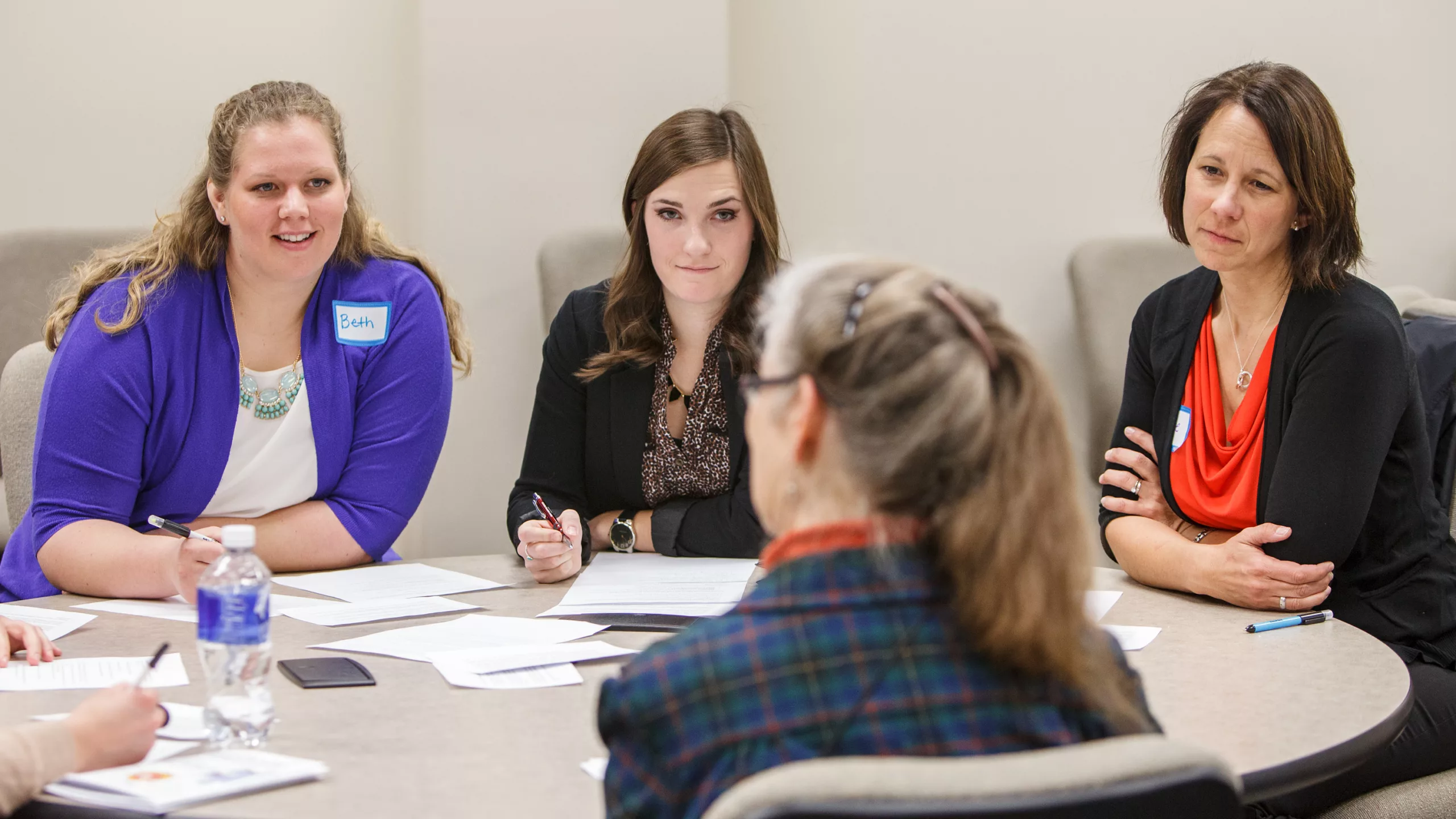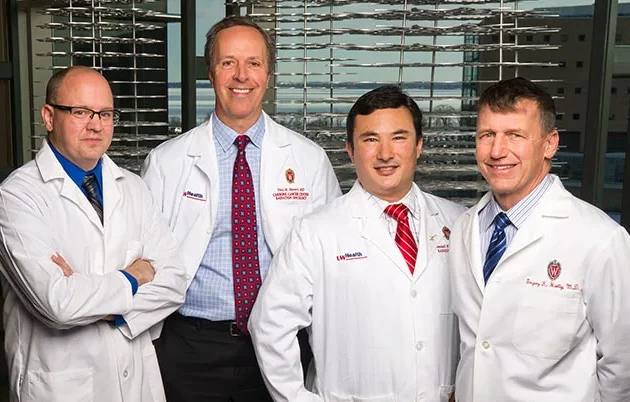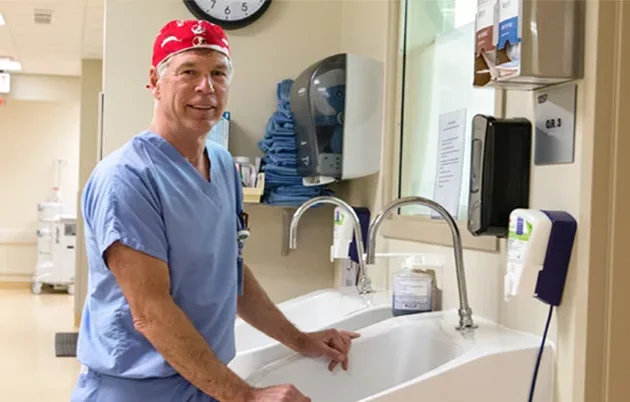Changing Education to Reflect Health Care Delivery Shortcomings
Although he took an unusual path into health care, it wasn’t by chance that Joseph Zorek, PharmD, ended up at UW-Madison.
Zorek, who’s been an assistant professor in the UW School of Pharmacy since 2013, spent three years teaching in secondary education before attending pharmacy school at the University of Illinois at Chicago. He then completed a two-year pharmacotherapy residency at Texas Tech University Health Sciences Center in Amarillo, where he developed a research focus in interprofessional practice and education.
Believing that pharmacists’ expertise was vastly underutilized, and searching for a framework to address this problem, Zorek became interested in the work of the National Center for Interprofessional Practice and Education at the University of Minnesota. That center’s efforts are oriented around the “Nexus,” which they describe as the interface between health professions education and health care delivery. The Nexus affords an opportunity to create deeply connected, integrated learning systems to transform education and care together.
“The ultimate goal is to create better health for patients and populations, but the idea they started rallying around is that we can’t do that unless we change the educational system,” Zorek notes. “That really struck me, partly because I had been a high school social studies teacher.”
He continues, “I had all this educational background, and I gravitated to this idea of the Nexus and how important educational policy changes or curricular changes could be in impacting health care outcomes.”
For Zorek, the appeal of moving his career to UW-Madison was two-pronged: It offered him the chance to make interprofessional practice and education the foundations of a research program, and he would have the opportunity, through CIPE, to help mold the university’s efforts in this area from the ground up.
He spends a large portion of his time promoting a better understanding of various health care professionals’ roles and responsibilities so students are prepared to work collaboratively on teams.
For example, at the UW School of Pharmacy, he has developed a course for first-year students that explores numerous ways pharmacy can be practiced and how pharmacists interact with other health professionals to strengthen team-based care.
Zorek notes, “One purpose of the course is to make sure pharmacy students understand all of their profession’s roles and responsibilities so they can adequately teach other professionals about pharmacy’s roles.”
A CIPE team is developing a related course, “Foundations of Interprofessional Education.” It will be offered as a pilot for medical, nursing and pharmacy students in fall 2017 and as an elective/selective for students in those programs in spring 2018. Ideally, the course eventually will be available for all health professions students. Some programs have expressed interest in making the course a requirement in the future.




